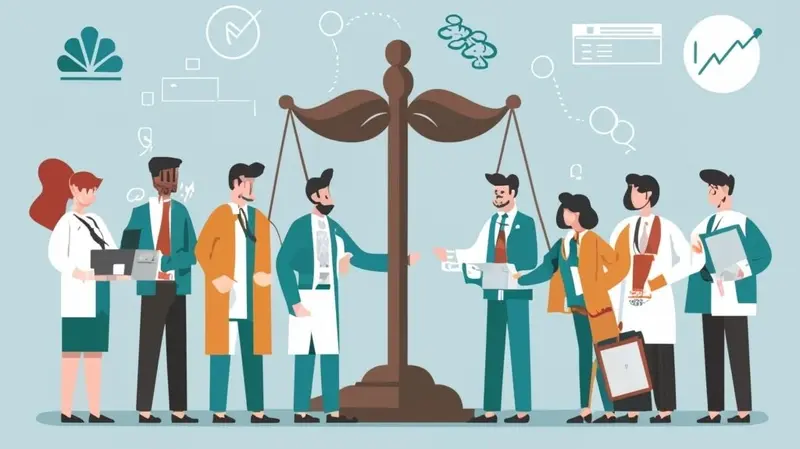Introduction to Brain Health
While often overshadowed by more visible health concerns, brain health remains a crucial component of overall well-being. It impacts our cognitive capabilities, emotional health, and physical resilience, thus making it imperative to sustain and nurture it actively. Supporting brain health isn’t solely the domain of healthcare professionals; it involves collective efforts from communities and individuals alike. Organizations that operate as the best glioblastoma charity illustrate how integral fundraising and advocacy are to medical progress in this field.
On a personal level, there are numerous strategies people can employ to enhance brain health, including balanced nutrition, consistent physical exercise, and engagement in intellectual activities. Still, the most proactive personal health strategies benefit from the backdrop of community support and the continuous flow of research breakthroughs, which introduce innovative solutions and fresh perspectives on managing neurological health.
The Importance of Community Support
Community support plays an irreplaceable role in brain health. Through organized efforts ranging from local charity events to expansive global campaigns, communities create a dynamic force that supports and amplifies awareness initiatives. Such communal efforts do not just provide funding; they cultivate an environment that fosters understanding and empathy. An informative resource on how communities can support health initiatives sheds light on mobilizing local efforts to champion brain health causes effectively.
By participating in these activities, community members become part of a larger narrative to broaden the horizon of brain health advocacy. Events like walks runs, and charity galas not only raise funds but also bring together individuals with common goals and interests, reinforcing the tapestry of support structures critical to sustaining long-term health projects. The moral and financial backing provided through such events is indispensable, especially for initiatives struggling to gain visibility or resources.
Research Initiatives Making a Difference
Embarking on the journey to understand and treat neurological disorders requires profound dedication and collaboration. Research initiatives represent a beacon of hope for those affected by these conditions, driving home the importance of constant exploration and inquiry. Each research endeavor aims to delve deeper into the complexities of the brain, unraveling mysteries that can ultimately lead to innovative treatment solutions and preventive measures that benefit society as a whole.
The impact of these initiatives is not confined to laboratories. Their ripple effects reach clinical settings, where improved therapeutic strategies can revolutionize patient care. The synergy between research and practical application ensures that breakthroughs translate into real-world improvements. This progressively enhances the quality of life for individuals dealing with brain disorders. Such comprehensive approaches guarantee that research investments yield tangible benefits across various aspects of healthcare.
Ways to Get Involved
For those eager to contribute to the cause of brain health, the avenues are plentiful and varied. Engagement begins with individual readiness to become active participants in the efforts that champion brain health. This can involve attending or organizing local events. It may also include contributing to fundraising efforts or directly supporting research by participating in clinical studies. Numerous organizations extend opportunities for individuals to get involved, making participation both accessible and fulfilling.
Volunteering time and resources or harnessing personal platforms around awareness events can dramatically amplify the message of brain health advocacy. Each contribution, whether it be time, money, or effort, adds to an immense collective drive that fuels progress. By understanding the different facets of involvement, individuals can better align their skills. This allows them to match their interests with initiatives poised to make a significant difference.
The Role of Education in Promoting Awareness
Education serves as a pivotal tool in the fight against misinformation and stigma related to brain health. By facilitating a comprehensive understanding of neurological disorders, educational campaigns have the power to reshape public discourse, fostering environments where openness and knowledge can flourish. Initiatives range from school-based educational programs aimed at young students to expansive public health campaigns that target a broader audience. By promoting awareness through education, individuals become better equipped to make informed decisions regarding brain health. They can enhance preventive measures and encourage proactive management of potential issues. These educational frameworks are crucial in creating a well-informed public. This public actively participates in conversations about brain health, favorably influencing policy and societal attitudes.
Real-Life Success Stories
Captivating real-life success stories serves as a testament to the power of community and research collaborations. They represent more than just inspiring narratives. They demonstrate the tangible impacts of united efforts and show how innovation and collaboration can transform lives. Whether shared through media or community events, these stories provide poignant examples. They show what is possible through combined commitment and action. The personal experiences of individuals and families who have benefited from these initiatives can spur further community involvement. They can also inspire others facing similar challenges.
These narratives act as beacons of hope, lighting the way for continued support and involvement. As more success stories emerge, they strengthen the resolve and expand the capacity of initiatives to effect lasting change.
The Future of Brain Health Research
As we gaze toward the horizon of brain health research, the possibilities seem boundless with the advent of new technologies and scientific methodologies. The future promises innovative breakthroughs that could fundamentally alter the landscape of neurological care, leading to more effective treatments and perhaps prevention of diseases yet to be fully understood or addressed. Insights into future advancements in neurological research showcase the transformative potential of emerging fields such as genetic research and personalized medicine.
Continuous investment in these developing areas ensures that the body of knowledge surrounding brain health progresses. By maintaining a commitment to innovation, we can cultivate a future with vastly improved life quality and treatment outcomes for those impacted by neurological disorders. Current successes and speculative imagination bolster this vision of the future, driving ongoing momentum in research.
Conclusion
The path toward nurturing brain health is a shared endeavor, intersecting personal health choices, community efforts, and extensive research. Researchers can make considerable strides toward understanding and improving outcomes related to brain health by galvanizing community support and consistently furthering research initiatives. Moreover, every contribution to this cause has a profound ripple effect, subsequently impacting not just individual lives but also entire communities. Consequently, these efforts paved the way for a brighter, healthier future for future generations.



